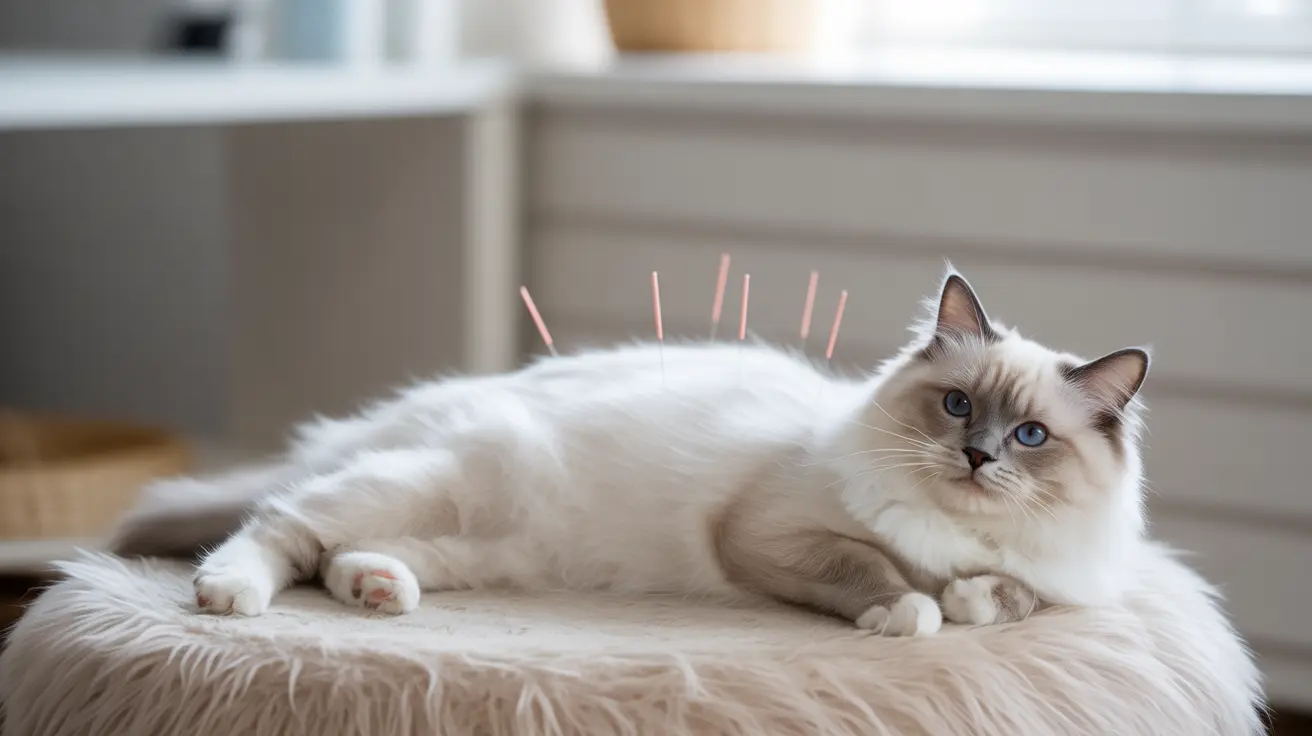Acupuncture for cats is gaining recognition as a powerful complementary therapy in veterinary medicine. This ancient healing practice, adapted specifically for felines, offers a gentle yet effective approach to managing various health conditions and promoting overall wellness. Whether your cat is dealing with chronic pain, age-related issues, or specific medical conditions, understanding how acupuncture can help is crucial for making informed decisions about their care.
Understanding Cat Acupuncture: The Basics
Cat acupuncture involves the precise placement of ultra-thin, sterile needles into specific points on your cat's body. These points, known as acupoints, are carefully selected to stimulate the nervous system, enhance blood flow, and trigger the body's natural healing responses. The treatment is performed by certified veterinary acupuncturists who understand both traditional Chinese medicine principles and modern veterinary science.
Benefits and Treatment Applications
The therapeutic applications of feline acupuncture are remarkably diverse. This treatment can address:
- Chronic pain conditions, especially arthritis
- Neurological disorders
- Digestive issues
- Respiratory problems
- Kidney disease
- Post-surgical recovery
- Anxiety and stress-related conditions
Many cat owners report significant improvements in their pets' mobility, appetite, and overall quality of life after beginning acupuncture treatments.
The Science Behind Feline Acupuncture
When needles are inserted at specific acupoints, they trigger several physiological responses:
- Release of natural pain-relieving endorphins
- Improved circulation to affected areas
- Reduction in inflammation
- Enhanced nerve function
- Muscle relaxation
- Immune system modulation
What to Expect During Treatment Sessions
A typical cat acupuncture session lasts between 15-30 minutes. Most cats remain surprisingly calm during treatment, with many even becoming relaxed or sleepy. The initial consultation includes a thorough health assessment, and your veterinarian will develop a customized treatment plan based on your cat's specific needs.
Safety and Side Effects
When performed by a qualified veterinary acupuncturist, the treatment is extremely safe. Side effects are minimal and may include:
- Mild drowsiness after treatment
- Temporary increase in symptoms (usually brief)
- Occasional minor bruising at needle sites
Frequently Asked Questions
What health conditions can acupuncture help treat in cats?
Acupuncture can effectively treat various conditions including chronic pain, arthritis, neurological disorders, digestive issues, respiratory problems, and kidney disease. It's particularly beneficial for managing chronic conditions and supporting overall wellness in senior cats.
How safe is acupuncture for cats, and what are the potential side effects?
Cat acupuncture is very safe when performed by a certified veterinary acupuncturist. Side effects are minimal and typically include mild drowsiness after treatment or temporary sensitivity at needle sites. Serious complications are extremely rare.
How does a typical acupuncture session for cats work, and what can I expect?
Sessions begin with a health evaluation, followed by the gentle placement of thin needles at specific points. The needles remain in place for 15-30 minutes while your cat rests. Most cats remain calm and may even become sleepy during treatment.
How often should my cat receive acupuncture sessions for optimal benefits?
Treatment frequency varies based on the condition being treated. Initially, sessions may be scheduled weekly for 3-4 weeks. As improvement occurs, treatments are typically spaced further apart, with some cats maintaining benefits with monthly sessions.
What qualifications should I look for in a veterinarian to ensure safe and effective acupuncture treatments for my cat?
Look for a veterinarian who has completed specialized training in veterinary acupuncture and holds certification from recognized organizations such as the International Veterinary Acupuncture Society (IVAS) or the Chi Institute. They should also have experience specifically treating cats.
Conclusion
Acupuncture for cats represents a valuable therapeutic option in modern veterinary medicine. Whether used alone or as part of an integrated treatment approach, it offers a safe, effective way to manage various health conditions and improve quality of life. If you're considering acupuncture for your cat, consult with a certified veterinary acupuncturist to determine if this treatment could benefit your feline companion.






